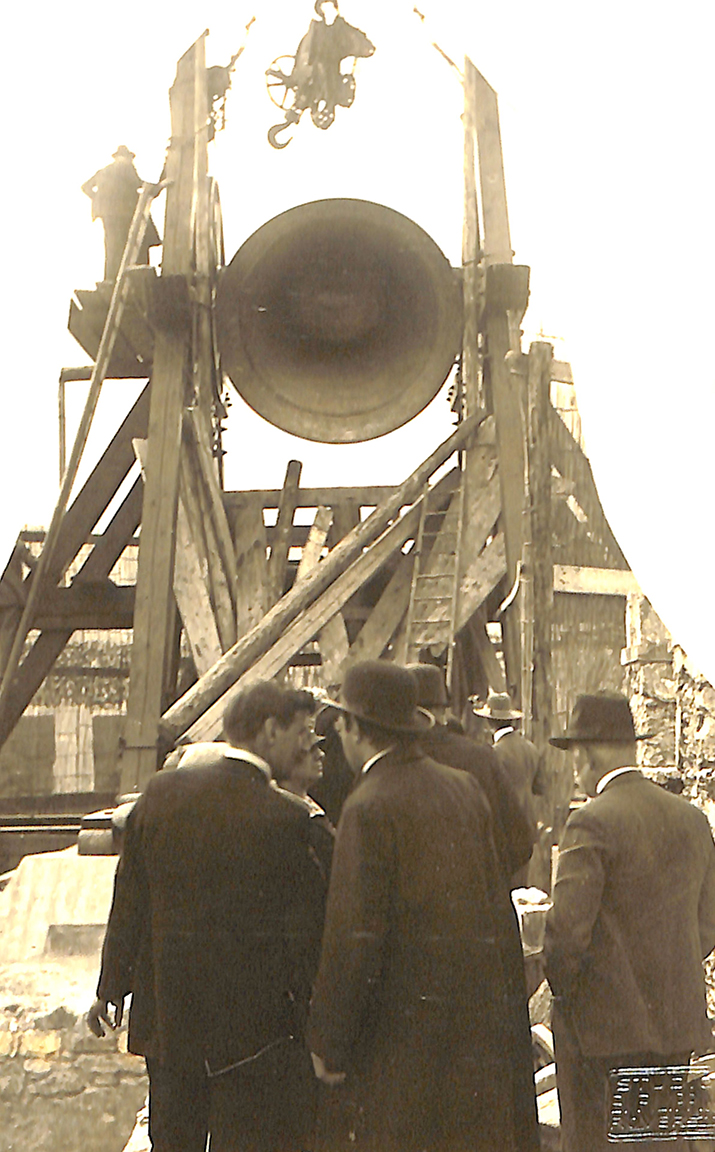FOR WHOM THE BELL TOLLS - P7
The inauguration had taken place, but the celebrations were not over. It had not been easy to bring the Bell to the tower, which seemed to be its permanent location, but now it was necessary to think about the last rite, set for 4 October 1925. Among the guests was also the King of Italy, Vittorio Emanuele III, who a few days earlier had asked to postpone the commitment. «I set the date in honour of St. Francis, the Saint of universal brotherhood, I prefer to renounce... rather than move this highly significant date» replied Don Rossaro to Prefetto Guadagnini, an administrative official who had made the request on behalf of the sovereign. The king was upset but kept his word. The episode remained confidential and did not affect the welcome received by the sovereign, who was awaited in the city by representatives of foreign nations, by all the sponsors, by members of the civil and military institutions and by a large group of fascists. After Don Rossaro's speech, which summarized the arduous path that had led to that moment, a representative of the «Austrian Black Cross» intervened, praying for eternal Peace over all the fallen, whose «opposing duties had one day made them enemies in the field but today a pious brotherhood of arms embraces them together in a Christian, Italian way». It seemed that this reconciliation on the part of Don Rossaro, which took place in the Capuchin Crypt in Vienna, was now to be followed by that of the centuries-old enemy.
Maybe something was happening, maybe Maria Dolens was starting to bear fruit. Also, because the statute of the Bell (the Magna Carta, as Don Rossaro was to call it) was clear. The text had been drawn up a few days earlier, while the men were preparing the tower. The preamble outlined the humanitarian aims behind the initiative. The first article specified that Maria Dolens was dedicated to «all» the fallen of the Great War while the second established the procedure: «The Bell of the Fallen will be rung every evening at the Hour of Night, an ancient and benevolent Italian custom intended for the daily cult of those who have passed away».
Now everything was ready, the most solemn moment had arrived. At the first stroke the king stiffened in his military salute, General Pecori Giraldi turned to Minister Celesia asking that Don Rossaro be made commendatore. But the priest was not happy: «Frankly the sound was not good, - he wrote in his diary - each stroke passed my heart like a poisoned blade. Not one joy in life was spared me by the poison. This too must have been poisoned. And serene but troubled, dejected but strong I thought, while everyone applauded: "I will recast it"».







